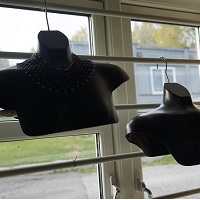Distance and closeness – negotiating ‘soft power’ in a women’s prison

By Daria Przybylska
The prison is an institution saturated with power. As such, prisons are ‘exemplary sites for the study of power’ (Liebling and Crewe 2012: 895). Yet, whereas the subject of power has been interrogated at length within men’s prisons, it has remained peripheral to studies of women’s imprisonment. Alison Liebling emphasises that ‘studies of women in prison have tended to focus on themes relevant to their status as ‘women’ rather than on themes relevant to the prison: such as power, authority, and justice (Liebling 2009: 20, emphasis added). I focus on this by exploring the nature of staff-prisoner relationships. These relationships were multi-faceted, complex, and rife with power – and the imprisoned women deliberately and carefully navigated them, negotiating the relational power yielded over them by their custodians.
.
